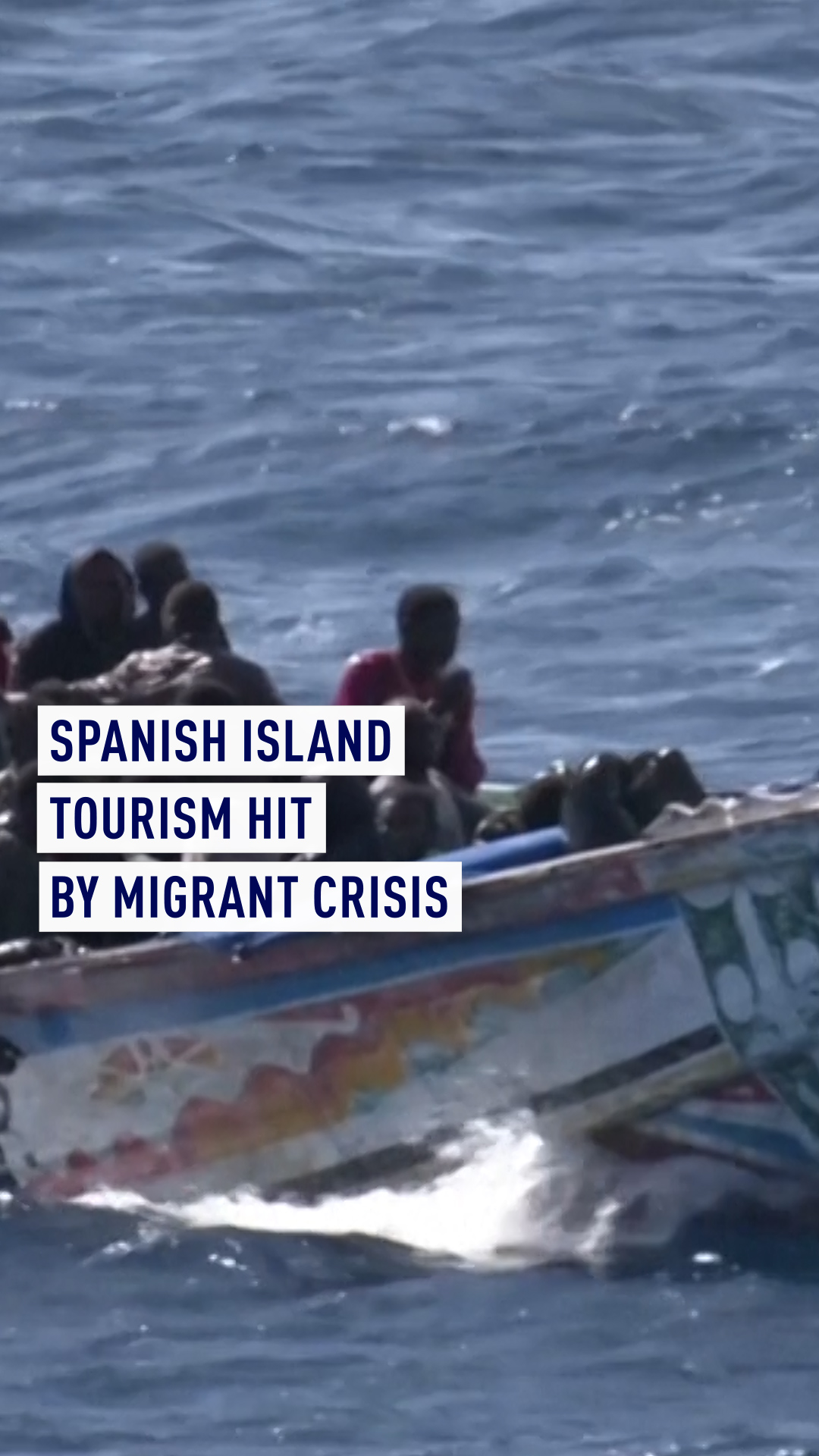00:57

El Hierro's crystal-clear waters and abundance of marine life have made this island in Spain's Canaries archipelago one of the world's top scuba diving spots.
But this year, the arrival of nearly 12,000 migrants on dugout wooden boats, or cayucos, from Africa means it is becoming better known as a new gateway to Europe.
At the tiny port of La Restinga, dive boats pick their way between around 20 abandoned cayucos in which discarded clothes, plastic utensils and petrol cans are still visible. At least four have sunk in the harbor, disgorging rubbish and fuel into waters that are part of a marine reserve.
The delay in removing the boats from the water amid a record surge in migrant arrivals has locals worried about its impact on tourism, the island's main source of income.
READ MORE
What we know about the Israel-Hamas truce deal
German police raid pro-Palestinian and far right properties
Sweden threatens to deport law-breaking immigrants
Local politicians, fishermen and tour operators are calling for more help from Spain's government and the European Union as islanders do what they can to help migrants who land wet, exhausted and often dehydrated or with hypothermia.
"If this boat – which has been here for more than 30 days – sinks, all the petrol, the oil from the engines, what's inside, will go to the bottom, in a national marine reserve," said Fernando Gutierrez, the head of the port's fishermen's union.
The cayucos occupy a third of La Restinga's marina, from which eight dive operators depart at least twice a day with dozens of dive groups.
Tourists from Germany, Switzerland and mainland Spain said they were saddened by the situation as they watched Red Cross officials and local doctors attend to newly-arrived migrants sitting wrapped in thermal blankets on the dock awaiting registration.
Many migrants die en route and at least six died after arriving at the island in the last two months alone.

The migrants' boats can become a problem for authorities. /Reuters
The migrants' boats can become a problem for authorities. /Reuters
Alpidio Armas, president of El Hierro's local government, said neither Spanish authorities nor the EU had grasped the magnitude of the crisis.
"We don't have enough resources to manage a phenomenon that is going to severely condition us," said Armas. "What is happening with migration is going to mean the absence of tourism on the island of El Hierro."
That might sound like scaremongering, but it's backed up by the personal experience of Genevieve Gosses, 55, a diver from France.
"We have friends who were supposed to come," she said, "and in the end they didn't because they were told 'It's not going to be pretty to see and it's sad and it could be annoying, because it's a little island here.'"
'People are dying'
In recent weeks, divers practising in the harbor have found clothes and even passports on its bottom, said Ginela Horn, director of a local dive company.
"We haven't had any bookings canceled yet but our clients are asking a lot of questions about the situation, whether it will get worse... it's a bit complicated to provide an answer," Horn said.
"In the end it is a situation that no one wants to see. You come on vacation and see the situation of these people who are arriving in bad conditions – it is a bit unpleasant, not only for them but for us and tourists in general."
Indeed, some find it a heartbreaking reminder of suffering. "When we imagine the challenging over the sea with the children in this little space – how do they manage?" asked Swiss resident Ana Tschenne, 70. "People are dying. We don't believe that it's possible in Europe today."
It's an ongoing problem, and the island is too small to solve it alone – as Antonio Arencibia, a coordinator at the local minors' migration center, sadly notes.
"Between 40 and 50 minors could make their lives in El Hierro and have a happy integration," Arenciaba said. "More than that would be hard as the island is pretty small, the educational and health resources are limited."

Subscribe to Storyboard: A weekly newsletter bringing you the best of CGTN every Friday
Source(s): Reuters